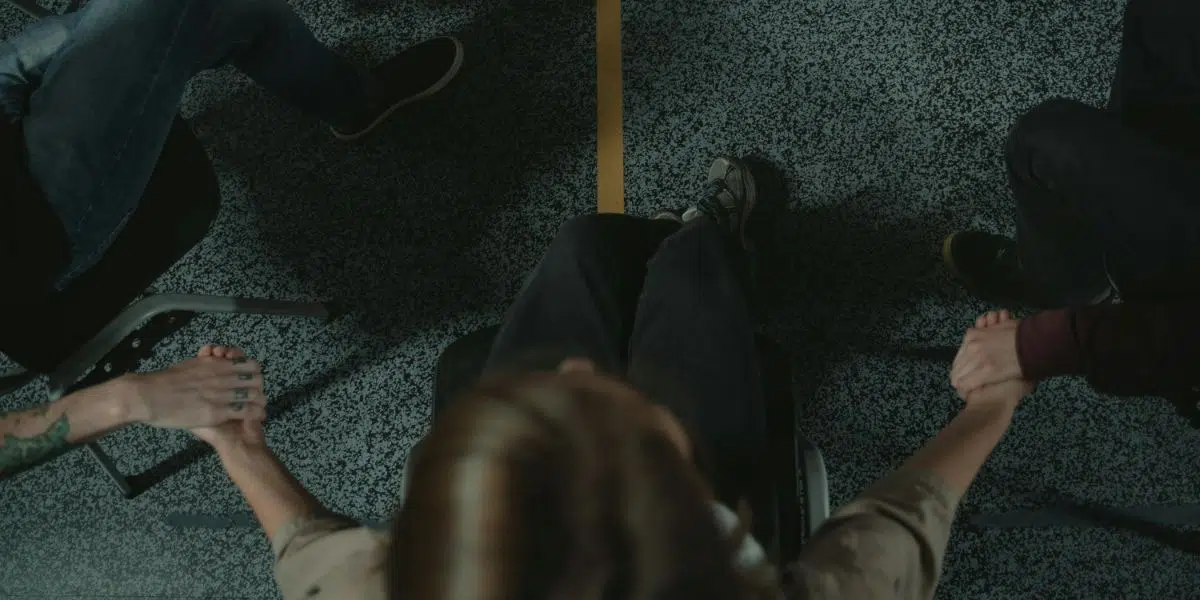Advanced therapies in rehabilitation refer to innovative and cutting-edge approaches that are used to enhance the recovery process for patients with various medical conditions. These therapies utilize advanced technologies, techniques, and interventions to improve outcomes and promote healing. They are an integral part of modern healthcare and play a crucial role in helping patients regain their independence and quality of life.
The importance of advanced therapies in rehabilitation cannot be overstated. They provide patients with access to state-of-the-art treatments that were once considered impossible or highly experimental. These therapies have the potential to revolutionize the field of rehabilitation by offering new hope and possibilities for patients who may have previously had limited options for recovery.
Key Takeaways
- Advanced therapies in rehabilitation offer a range of benefits for patients, including improved outcomes and reduced recovery times.
- There are several different types of advanced therapies available, including neurorehabilitation, orthopedic rehabilitation, cardiovascular rehabilitation, respiratory rehabilitation, and pain management.
- Innovative approaches to rehabilitation with advanced therapies are constantly being developed, including the use of virtual reality and robotics.
- Advanced therapies for neurological rehabilitation can help patients recover from conditions such as stroke, traumatic brain injury, and spinal cord injury.
- Advanced therapies for orthopedic rehabilitation can help patients recover from injuries and surgeries related to the musculoskeletal system.
The Benefits of Advanced Therapies for Rehabilitation
One of the key benefits of advanced therapies in rehabilitation is improved outcomes for patients. These therapies are designed to target specific areas of the body or conditions, allowing for more targeted and effective treatment. This can lead to faster and more complete recovery, as well as improved overall function and quality of life.
In addition to improved outcomes, advanced therapies also offer reduced recovery time. By utilizing cutting-edge techniques and technologies, these therapies can accelerate the healing process and help patients regain their independence more quickly. This is particularly important for individuals who may have limited time or resources for rehabilitation.
Another significant benefit of advanced therapies is increased patient satisfaction. These therapies often provide patients with new treatment options that are less invasive, more comfortable, and more convenient than traditional methods. This can lead to higher levels of patient engagement and motivation, resulting in better overall outcomes.
Furthermore, advanced therapies in rehabilitation can also be cost-effective in the long run. While the initial investment may be higher compared to traditional treatments, these therapies can lead to reduced hospital stays, fewer complications, and decreased reliance on other healthcare services. This can result in significant cost savings for both patients and healthcare systems.
Understanding the Different Types of Advanced Therapies
There are several different types of advanced therapies used in rehabilitation. These include regenerative medicine, stem cell therapy, gene therapy, biologics, robotics, and virtual reality.
Regenerative medicine involves the use of cells, tissues, or organs to restore or replace damaged or diseased tissues. This can include techniques such as tissue engineering, cell transplantation, and organ regeneration. Regenerative medicine holds great promise for rehabilitation as it has the potential to repair and regenerate damaged tissues and organs, leading to improved function and recovery.
Stem cell therapy involves the use of stem cells to promote healing and regeneration. Stem cells have the unique ability to differentiate into various cell types and can be used to repair damaged tissues or organs. This therapy has shown promising results in a variety of conditions, including stroke, spinal cord injury, and cartilage repair.
Gene therapy involves the introduction of genetic material into a patient’s cells to treat or prevent disease. This therapy can be used to correct genetic mutations, enhance the body’s natural healing processes, or target specific disease pathways. Gene therapy has shown potential in conditions such as Parkinson’s disease and coronary artery disease.
Biologics refer to therapeutic products derived from living organisms or their components. These products can include antibodies, proteins, or cells that are used to target specific disease processes or promote healing. Biologics have been used in conditions such as bone healing, angiogenesis, and inflammation.
Robotics involves the use of robotic devices to assist with rehabilitation. These devices can provide assistance with movement, balance, and strength training. Robotics can be particularly beneficial for individuals with spinal cord injuries or neurological conditions that affect mobility.
Virtual reality utilizes computer-generated environments to simulate real-world experiences. This technology can be used in rehabilitation to provide immersive and interactive experiences that promote motor learning and functional recovery. Virtual reality has shown promise in conditions such as stroke rehabilitation and chronic pain management.
Innovative Approaches to Rehabilitation with Advanced Therapies
| Approach | Therapy Type | Success Rate | Cost |
|---|---|---|---|
| Virtual Reality | Occupational Therapy | 80% | 500 per session |
| Robotics | Physical Therapy | 75% | 1000 per session |
| Neurofeedback | Speech Therapy | 90% | 800 per session |
| Art Therapy | Mental Health Therapy | 70% | 300 per session |
In addition to the different types of advanced therapies, there are also innovative approaches that can be used to enhance rehabilitation outcomes. These approaches include combination therapies, personalized medicine, tele-rehabilitation, and wearable technology.
Combination therapies involve the use of multiple advanced therapies or interventions in combination to maximize the benefits and outcomes for patients. This approach recognizes that different therapies may have synergistic effects and can work together to promote healing and recovery. For example, a patient with a spinal cord injury may benefit from a combination of stem cell therapy, robotics, and physical therapy.
Personalized medicine involves tailoring treatment plans and interventions to the individual characteristics and needs of each patient. This approach recognizes that each patient is unique and may respond differently to different therapies. By taking into account factors such as genetics, lifestyle, and preferences, personalized medicine can optimize treatment outcomes and improve patient satisfaction.
Tele-rehabilitation utilizes technology to deliver rehabilitation services remotely. This approach can be particularly beneficial for individuals who have limited access to healthcare services or who may have difficulty traveling to a rehabilitation facility. Tele-rehabilitation can include virtual consultations, remote monitoring, and home-based exercise programs.
Wearable technology refers to devices that can be worn on the body to monitor and track various health parameters. These devices can provide real-time feedback and data on factors such as heart rate, movement, and posture. Wearable technology can be used in rehabilitation to monitor progress, provide motivation, and optimize treatment plans.
Advanced Therapies for Neurological Rehabilitation
Neurological rehabilitation focuses on the recovery and management of individuals with conditions affecting the nervous system. Advanced therapies play a crucial role in this field by offering new possibilities for recovery and functional improvement.
Stem cell therapy has shown promise in the treatment of stroke. Stem cells can be used to promote neuroregeneration and repair damaged brain tissue. Clinical trials have demonstrated improvements in motor function, cognitive function, and quality of life in stroke patients who received stem cell therapy.
Gene therapy is being explored as a potential treatment for Parkinson’s disease. By introducing genes that produce dopamine into the brain, gene therapy aims to restore normal dopamine levels and improve motor symptoms. Early studies have shown promising results, with improvements in motor function and a reduction in medication requirements.
Robotics has been widely used in the rehabilitation of individuals with spinal cord injuries. Robotic exoskeletons and assistive devices can provide support and assistance with walking, balance, and upper limb function. These devices can help individuals regain mobility and independence, improving their overall quality of life.
Advanced Therapies for Orthopedic Rehabilitation
Orthopedic rehabilitation focuses on the recovery and management of individuals with musculoskeletal conditions or injuries. Advanced therapies offer new possibilities for healing and functional improvement in this field.
Platelet-rich plasma (PRP) therapy has gained popularity for the treatment of joint pain. PRP involves injecting a concentrated solution of platelets into the affected joint, which can promote tissue repair and reduce inflammation. This therapy has shown promising results in conditions such as osteoarthritis and tendonitis.
Stem cell therapy is being explored as a potential treatment for cartilage repair. Stem cells can be used to regenerate damaged cartilage tissue, potentially delaying or preventing the need for joint replacement surgery. Early studies have shown improvements in pain, function, and cartilage quality in patients who received stem cell therapy for cartilage repair.
Biologics, such as growth factors and bone morphogenetic proteins, are being used to enhance bone healing. These substances can stimulate the body’s natural healing processes and promote the formation of new bone tissue. Biologics have been particularly beneficial in complex fractures or non-healing bone defects.
Advanced Therapies for Cardiovascular Rehabilitation
Cardiovascular rehabilitation focuses on the recovery and management of individuals with heart and vascular conditions. Advanced therapies offer new possibilities for improving heart function and promoting cardiovascular health.
Stem cell therapy has shown promise in the treatment of heart failure. Stem cells can be used to regenerate damaged heart tissue and improve cardiac function. Clinical trials have demonstrated improvements in heart function, exercise capacity, and quality of life in patients who received stem cell therapy for heart failure.
Gene therapy is being explored as a potential treatment for coronary artery disease. By introducing genes that promote blood vessel growth and reduce inflammation, gene therapy aims to improve blood flow to the heart and prevent further damage. Early studies have shown improvements in angina symptoms and exercise tolerance in patients who received gene therapy for coronary artery disease.
Biologics, such as growth factors and cytokines, are being used to promote angiogenesis in patients with peripheral artery disease. These substances can stimulate the formation of new blood vessels, improving blood flow to the affected limbs. Biologics have been shown to improve symptoms, walking distance, and quality of life in patients with peripheral artery disease.
Advanced Therapies for Respiratory Rehabilitation
Respiratory rehabilitation focuses on the recovery and management of individuals with respiratory conditions or diseases. Advanced therapies offer new possibilities for improving lung function and promoting respiratory health.
Stem cell therapy is being explored as a potential treatment for chronic obstructive pulmonary disease (COPD). Stem cells can be used to regenerate damaged lung tissue and reduce inflammation in the airways. Early studies have shown improvements in lung function, exercise capacity, and quality of life in patients who received stem cell therapy for COPD.
Gene therapy is being investigated as a potential treatment for cystic fibrosis. By introducing genes that correct the underlying genetic defect, gene therapy aims to improve lung function and reduce respiratory symptoms. Early studies have shown improvements in lung function, infection rates, and quality of life in patients who received gene therapy for cystic fibrosis.
Biologics, such as monoclonal antibodies, are being used to target specific inflammatory pathways in asthma. These substances can reduce airway inflammation and improve asthma control. Biologics have been shown to reduce asthma exacerbations, improve lung function, and reduce the need for oral corticosteroids in patients with severe asthma.
Advanced Therapies for Pain Management in Rehabilitation
Pain management is an essential component of rehabilitation, as pain can significantly impact a patient’s ability to participate in therapy and achieve optimal outcomes. Advanced therapies offer new possibilities for managing pain and improving overall rehabilitation outcomes.
Platelet-rich plasma (PRP) therapy has shown promise in the treatment of chronic pain. PRP can be injected into the affected area to promote tissue repair and reduce inflammation. This therapy has been used in conditions such as osteoarthritis, tendinopathy, and chronic low back pain.
Stem cell therapy is being explored as a potential treatment for neuropathic pain. Stem cells can be used to modulate the immune response and promote tissue repair in the nervous system. Early studies have shown improvements in pain scores, function, and quality of life in patients who received stem cell therapy for neuropathic pain.
Biologics, such as anti-inflammatory cytokines or growth factors, are being used to target specific inflammatory pathways involved in chronic pain. These substances can reduce inflammation and modulate pain signaling pathways. Biologics have shown promise in conditions such as rheumatoid arthritis, fibromyalgia, and complex regional pain syndrome.
The Future of Advanced Therapies in Rehabilitation
The future of advanced therapies in rehabilitation holds great promise for further advancements and improvements in patient care. Several key areas are likely to shape the future of rehabilitation.
Advancements in regenerative medicine will continue to drive innovation in rehabilitation. Researchers are exploring new techniques for tissue engineering, cell transplantation, and organ regeneration. These advancements have the potential to revolutionize the field of rehabilitation by offering new possibilities for tissue repair and regeneration.
The integration of technology in rehabilitation will also play a significant role in the future. Virtual reality, robotics, and wearable technology will continue to evolve and become more accessible. These technologies can enhance patient engagement, provide real-time feedback, and optimize treatment outcomes.
Personalized medicine will become increasingly important in rehabilitation. By tailoring treatment plans and interventions to the individual characteristics and needs of each patient, personalized medicine can optimize outcomes and improve patient satisfaction. Advances in genetics, biomarkers, and imaging techniques will contribute to the development of personalized approaches to rehabilitation.
Collaboration between healthcare professionals will be crucial for optimal patient outcomes. Rehabilitation is a multidisciplinary field that requires the expertise of various healthcare professionals, including physicians, therapists, nurses, and researchers. By working together and sharing knowledge and resources, healthcare professionals can provide comprehensive and coordinated care that addresses the unique needs of each patient.
In conclusion, advanced therapies in rehabilitation offer new possibilities for improving outcomes and promoting healing in patients with various medical conditions. These therapies utilize innovative technologies, techniques, and interventions to enhance recovery and restore function. From regenerative medicine to robotics and virtual reality, advanced therapies are revolutionizing the field of rehabilitation. The future holds great promise for further advancements in regenerative medicine, the integration of technology in rehabilitation, personalized medicine, and collaboration between healthcare professionals. With continued research and innovation, advanced therapies will continue to transform the lives of patients and improve their quality of life.
Take the first step with Carrara Treatment
Dr. Brooke Gilbertsen is a licensed clinical psychologist who has been working in the field of mental health since 2011 and specifically co-occurring disorders since 2013. Brooke brings her knowledge, experience, and compassion to support clients and their loved ones on their journey toward recovery, health, and holistic healing. Brooke has experience working with a wide range of diagnoses from severe mental illness and personality disorders to depression and anxiety, and believes the underlying cause must be treated in order for freedom from addiction to occur. Brooke treats the whole person, considering mental health diagnoses, genetics, neuropsychology, the context of the family and environment, social relationships, trauma and loss, vulnerability, shame, and self-worth. Brooke applies a wide range of evidenced-based modalities, incorporating mindfulness, spirituality, and psychodynamic approaches to assist clients in the healing process. Brooke is passionate about helping her patients discover the best version of themselves, with a renewed sense of freedom, purpose, and meaning. The model is to build a life that you want to show up to, and don’t need a vacation from.
Brooke completed her B.A. in Psychology in 2008 from San Diego State University. She obtained her M.A. Degree in Clinical Psychology in 2013 from Argosy University, and received her Doctorate in Psychology in 2016 from The Chicago School of Professional Psychology. She is the author of The Impact of Mindfulness on the Quality of Life of Cancer Patients, published in 2017. Brooke has been the keynote speaker for lectures on addiction, and is passionate about helping others find their way as they take the courageous journey toward self-growth.



